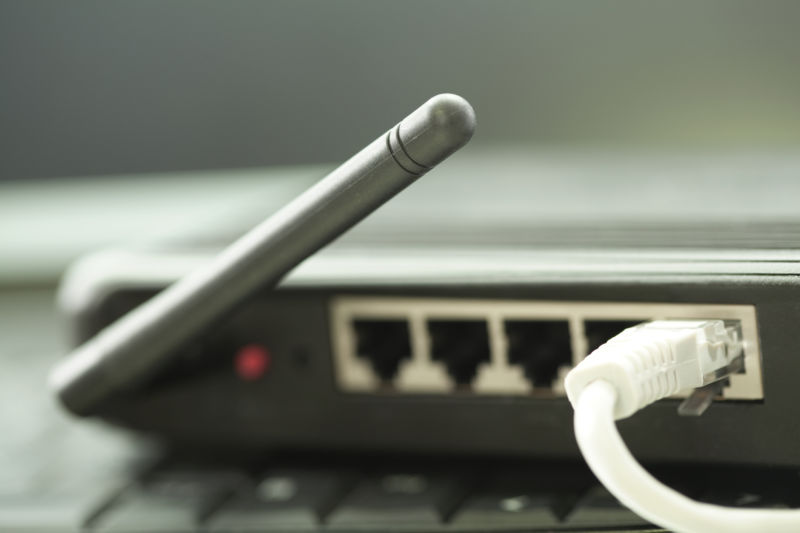
A new US law prohibits broadband and TV providers from charging "rental" fees for equipment that customers have provided themselves.
Even by the low customer-service standards of the cable and telecom industries, requiring customers to pay a monthly fee for equipment they own is pretty rude. But that's exactly what Frontier Communications does to its customers, as we wrote in July 2019. Frontier customers who use routers they own themselves must still pay Frontier $10 a month in a "Wi-Fi Router" fee, even if the router they use is fully compatible with the service and requires no additional work on Frontier's part.
As Frontier's website says, its customers are forced to pay "a monthly lease fee for your Frontier router or modem—whether you use it or not." That statement makes it sound like Frontier automatically provides the device to all customers—but the customer in Texas we wrote about never received a router from Frontier and was still required to pay the fee.
In mid-2020, Frontier should be forced to change its ways. A US government spending bill approved by Congress and signed by President Trump last month includes new requirements for television and broadband providers.
A new "consumer right to accurate equipment charges" prohibits the companies from charging customers for "covered equipment provided by the consumer." Covered equipment is defined as "equipment (such as a router) employed on the premises of a person... to provide [TV service] or to provide fixed broadband Internet access service."
The companies may not charge rental or lease fees in cases when "the provider has not provided the equipment to the consumer; or the consumer has returned the equipment to the provider."
The new law is an update to the Communications Act and is scheduled to apply six months after passage, which would be June 20. The law gives the Federal Communications Commission an option to extend the deadline by six months if the FCC "finds that good cause exists for such an additional extension." As we've previously written, the FCC hasn't done much of anything to protect customers from bogus rental fees.
Update: the FCC granted the six-month extension in April, giving Frontier and other ISPs until December 20, 2020 to comply.
Frontier says it will comply
Frontier told Ars that it will comply with the new law, but it apparently won't give customers a break on rental fees until it's actually in place. "Once the new law is effective, Frontier plans to comply with the requirements," a company spokesperson told us.
Of course, the law doesn't require providers to give back the money they never should have charged in the first place. And TV and broadband providers are notorious for randomly raising prices, even when customers are under contract, so companies may adapt by raising base prices or by inventing some other fee that isn't outlawed yet. We asked Frontier if the company will raise its prices to compensate for the revenue it will lose because of the new consumer-protection law, but Frontier didn't answer.
Frontier has claimed it charges the fee because non-Frontier routers cause "increased complaints and more difficulty with troubleshooting." But Frontier also said it "cannot support or repair the non-Frontier equipment," so it's charging $10 a month despite not providing support for non-Frontier routers.
Frontier offers residential and business services in 29 states over its fiber and copper networks. Frontier has 3.8 million residential customers and makes an average of $88.45 per month per customer. The company reported a net loss of $345 million in the most recent quarter.
Hidden fees still a big problem
The new law isn't just about rental fees for equipment that doesn't exist, so it could become harder for providers to mislead customers about prices in general. A new right to transparency requires TV companies to provide customers the total monthly charges, including all company-imposed fees and a good-faith estimate of all government-imposed fees and taxes, before they enter into a contract. This notice must also specify the amount of promotional discounts and when those discounts will expire.
The initial notice can be made by phone, in person, online, "or by other reasonable means." Companies must also send that list of total charges to customers "by email, online link, or other reasonably comparable means" no later than 24 hours after they enter a contract, which triggers another 24-hour period in which the customer can cancel "without paying early cancellation fees or other disconnection fees or penalties." The new law also requires itemization of all the fees in each monthly bill.
But the right to cancel without penalty only applies when customers initially sign up for service, so it doesn't prevent companies from raising prices later on, even when customers are under contract. For years, TV providers have been charging "Broadcast TV" and "Regional Sports Network" fees that ostensibly cover the rising cost of programming. But providers generally exclude those fees from their advertised prices and raise them regularly regardless of the customer's contract status, so in practice, the fees are used to hide the full cost of service and hit in-contract customers with unexpected bill increases.
Still, the prohibition on rental fees for equipment that doesn't exist, and the required itemization of all fees should help customers out a bit. Legislation sponsors Rep. Anna Eshoo (D-Calif.) and Senator Ed Markey (D-Mass.) hailed Congress' action last month and blasted cable companies for repeatedly duping consumers with hidden fees.
"Cable companies habitually blindside customers by selling a service for one price and then tacking on hidden fees and extra charges at the end of the month," Eshoo said in a press release. "These 'below-the-line' fees add up to $28 billion a year at the expense of the American people."
reader comments
202